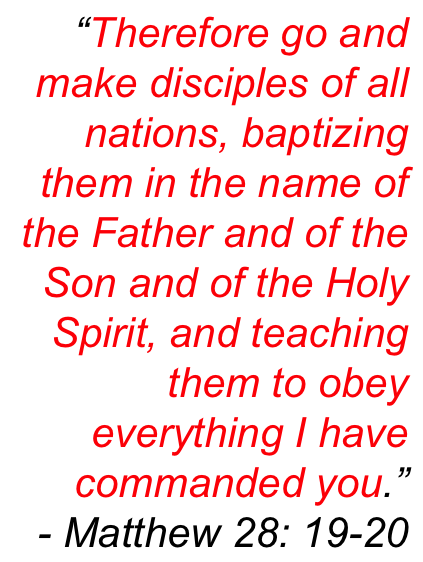Red Letter Christians are convinced that Jesus-like neighbor-love was never meant to be performed once annually, on the church’s summer mission trip. Helen Lee, author of The Missional Mom, has roped her own family into everyday mission near home, and she’s encouraging other families to get on board.
Helen, how did you come to care about missional living, specifically as a parent?
I confess that I was not very good at “loving my neighbor, ” both literally and figuratively, until God opened my eyes to this idea of being a missional mom. Even four or five years ago I was completely caught up in the typical suburban parent whirlwind of getting my kids into all sorts of activities, and doing so because I feared they would somehow fall behind. God had to really rattle my cage to get through to me and to show me how much I had been affected by the cultural norms around me.
I was so busy leading a stay-at-home mom’s life narrowly focused on our own family’s welfare alone. When God began to teach me about missional parenting, I realized how much I was missing out on the mission he had intended for me and my family.
How would you describe a missional mom or dad?
A missional mom or dad recognizes that his or her primary purpose in life is to love God first and then to follow the mission to love one’s neighbors and make disciples of all nations. In other words, the primary purpose of a mom or dad is no different than that of any Christian.
I think being a missional parent is an important corrective to the trend we are seeing in parenting trends today that put children at the center of their parents’ lives, when we know as Christians that we must first put God and his purposes at the center of our lives.
Where, in the gospels, do you glean inspiration for this kind of missional living?
My last answer gives away the clue for where in the Gospels we see this idea expressed. Matthew, Mark, and Luke all record the conversation Jesus had in which he expresses what the two greatest commandments are: to love God and then to love our neighbors. Jesus expands upon the idea of who our neighbor is in the subsequent telling of the parable of the Good Samaritan, in which he demonstrates how counter-cultural this love can actually be. He also extends the concept in what we call the Great Commission in Matthew 28, to make “disciples of all nations.”
And parents need to notice that the idea isn’t just to make disciples of our children, although they are absolutely included in the mission. What I tend to see these days, though, is that parents are so consumed by child-rearing and keeping up with what everyone else is doing that they forget about the larger mission outside the walls of their homes.
Why do you think more Christians aren’t missional in this way?
One word: culture. Our culture has fooled parents into believing that their children’s future happiness and success depends on making sure they have all the right opportunities when they are to excel and to achieve. However, the definitions of “happiness” and “success” that they are using are very much culturally-driven, often in ways they may not even realize.
Helen, I want you to put on a weird thinking cap right now. Imagine Jesus as a stay-at-home parent. What does it mean to engage with your neighbors as you walk the Jesus way?
It means that parents see every opportunity that they are out and about as an opportunity to reflect the love of Christ to others. As parents, whether we are stay-at-home or not, we have abundant opportunities to interact with other families—perhaps at our kids’ schools, or in the context of their sports teams or music schools. Every context in which we have opportunities to build relationships with others is a chance to be a Christian witness to others, whether we are given the opportunity to share our spiritual journey, or demonstrate our Christian values with how we act and treat others in those settings.
Everyone in my family, parents and kids alike, now spends more effort in getting to know our neighbors and serve them when we can, as opposed to running in and out of our house without interacting with those around us. We have expanded our knowledge of the needs of the world, both locally and globally, and we much more regularly give of our time and resources to help meet those needs.
 So what does that look like on the ground?
So what does that look like on the ground?
For example, I used to be much more caught up in the consumeristic perspective that said our kids had to be showered with gifts on birthdays; we’ve let that idea go, reduced the number of gifts way down to a very small number from family alone, and we always ask our kids’ friends to give to a worthy cause instead of giving our kids more than they need.
I know a lot of mamas have been inspired by your book. Give us a snapshot of a parent who’s “gotten” this idea.
I can think of so many examples! Some are in my book, but I frequently hear about moms who have awakened to this idea that they are missionaries, both within but also outside of the home.
- One of my friends here in my town, in suburban Chicagoland, felt stirred to go to Congo on a vision trip, in which she had the chance to meet the child her family sponsors through World Vision face-to-face, and she tells people how that experience has “forever changed” her.
- Other friends have launched playgroups to serve and love other moms in their communities.
- Still other parents have made radical decisions for Christ, to live in low-income neighborhoods as a way to bless the families and schools in those cities.
What I love about all these stories is that they are each so unique and personal. God has a mission for each and every one of us, our children included, and it will look different for each one of us. We don’t have to compare with what other people are doing; we just have to be faithful to the call that he has given us, and God will take care of the result and the impact that we have on others.

